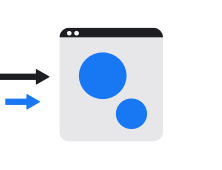
Facebook’s new “Off-Facebook Activity” tool is now deployed for all Facebook user accounts. This tool allows users to view & control the information Facebook receives about their activity on other apps and websites (i.e., “Off-Facebook” activity). As users engage this tool to disconnect such data from their account, advertisers need to understand if & how it will impact the signals available for campaign attribution reporting & optimization, and for building custom audiences used in ad targeting.
A user’s activity on an app or website that is sent to Facebook is inherently associated with the related app or website. Clearly, that data can be viewed & controlled with this new Off-Facebook Activity tool. But, what about user data sent to Facebook via offline events, or in customer lists, uploaded directly into the Facebook user interface or via the Facebook Marketing API? Offline events and customer lists will not be associated with an end-user engaged app or website.
We asked Facebook support, and below is what they had to say:
“Depending on the data source, we show domain or Business Manager name in people’s activity list, which means that in some instances, agencies may appear. This happens, for example, if an agency uploads information via the Offline Conversions API or if an agency implements a Pixel in an iFrame so that we do not know what website the Pixel is firing on.”
Facebook Support, 01/29/2020
Don’t let your agency create Facebook assets for your advertising in their business manager account
This underscores the importance of an advertiser creating assets (pixels, ad accounts, offline event sets, catalogs, etc.) within their own business manager (not their agency’s). If a user’s data is added to an offline event set or customer list that was created by an agency, the name of the agency associated with the related business manager account will appear in the Off-Facebook Activity tool instance for that user. The user will possibly be more inclined to allow a trusted brand to continue to use their data to advertise to them, as opposed to a random unknown agency.
Here are some very strange, real-life, agency names that might nudge a user to disconnect their user data: Naked, The Bank, Big Spaceship, Bonehook, Taxi, Strawberry Frog, Wexley School for Girls, Pocket Hercules, Kids Love Jetlag, Walrus, Mother, Moosylvania, Huge.
You get the point (hopefully).
How does this impact Facebook advertising?
A help article titled “What Businesses Should Know About the Upcoming Tool for Managing Off-Facebook Activity” notes that this tool may impact targeting. It is obvious that if a user disconnects their Facebook account from their recorded activity for an app or website, the related advertiser will not be able to target them for advertising as effectively (although they may still be targeted with broad targeting techniques – like age & location). And possibly most importantly, such disconnected user data can not be used to drive custom audience creation, like lookalike audiences.
Measurement will remain intact
Because Facebook’s measurement and analytics tools have been engineered to prevent reporting personal information (e.g., names, email addresses, phone numbers, etc.), even if a user elects to disconnect their account with this new tool, you’ll still be able to leverage their recorded user activity on your app, website, offline events, and uploaded customer lists to report on the performance of advertising (i.e., attribution reporting will remain intact). You’ll still have as complete a picture as possible to understand how Facebook advertising impacted related conversion actions on apps, websites, and offline (both click & view-through conversions, with consideration for attribution windows).
The question is, are you accurately and completely recording user activity that is most important to your business with pixel based Facebook standard events, or offline conversions? If not and you are advertising on Facebook or Instagram, you are wasting money.
Related links
- What is off-Facebook activity?
- How does Facebook receive information from other businesses and organizations?
Settings & Privacy > Settings > Your Facebook Information
